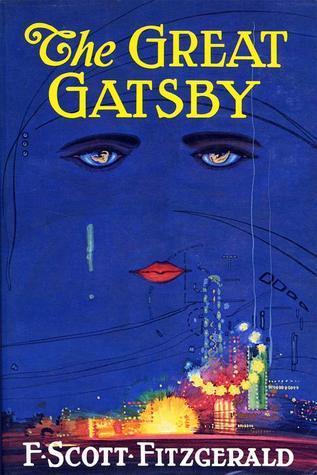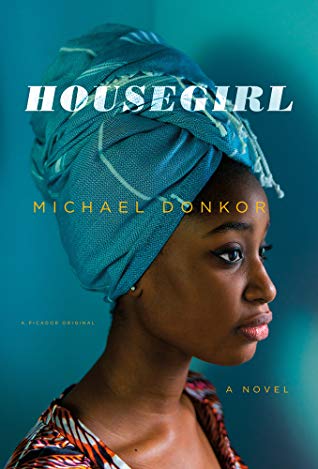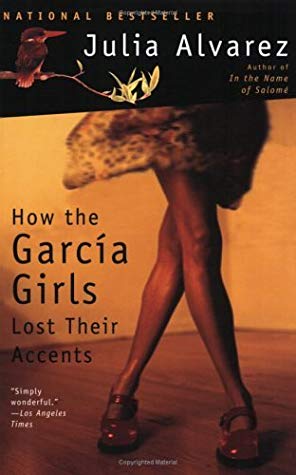I’ve read a LOT of books since the start of the year–more than I read in all of 2018 combined! The majority of these books were read during my first semester of college. I took two literature classes this first semester–Literature of Displacement and Literary Places so needless to say I was reading quite a bit. A previous post highlighted all of the books I read for pleasure this semester, but this post is focused on the books I read for those two classes.
books for class
I. The Children of Green Knowe by L. M. Boston // Literary Places
This was a children’s book that I certainly didn’t expect to be reading in college–it was a quick read and not particularly memorable.
II. Meadowland: The Private Life of an English Field by John Lewis-Stempl // Literary Places
This nonfiction account of an English field was one of the most unique books I’ve ever read. I quite enjoyed the style (particularly a focus on etymology).
III. Migritude by Shailja Patel // Literature of Displacement
This poetry collection is absolutely outstanding. I wrote an in-depth paper on Migritude as part of my final for this class and had a blast diving deeper into the creation and curation of this collection.
IV. Mrs. Dalloway by Virginia Woolf // Literary Places
Mrs. Dalloway was my first Virginia Woolf book. Her style is certainly unique and I quite liked discussing this novel in class.
V. Cambridge by Caryl Phillips // Literature of Displacement
Cambridge was a particularly interesting novel, especially upon learning that all of the prose was loosely based upon the accounts of both plantation owners and slaves from the time period the novel is set. My class had mixed feelings about the novel itself, particularly because the majority of the content focused on the plight of a misguided, meddling white woman. Not my favorite.
VI. The Great Gatsby by F. Scott Fitzgerald // Literary Places
This was my third read through of The Great Gatsby and honestly I always enjoy this one! To be honest I initially felt like a re-read was a waste of time, but I was pleasantly surprised by the nuanced conversation my class was able to have considering this was a re-read for nearly all of us. Later in the class–unrelated to the original assignment–I wrote a 15+ page paper regarding the history of The Great Gatsby in the US and its status as a “Great American Novel”. If anyone would like to geek out over it please let me know, I have lots of great sources but So We Read On: How The Great Gatsby Came to Be and Why It Endures was a detailed one I want to read more in depth (considering I could really only read sections due to the time constraints of the project).
 VII. Heart of Darkness by Jospeh Conrad // Literary Places
VII. Heart of Darkness by Jospeh Conrad // Literary Places
I had a lot of mixed feelings about Heart of Darkness and wish that my class had spent more time discussing its criticisms rather than struggling to dismantle it. This was a book I wish I could have been discussing for the 2nd or third time…
VIII. The Belly of the Atlantic by Fatou Diome, translated by Ros Schwartz // Literature of Displacement
The Belly of The Atlantic was something I really enjoyed reading because of the stylistic choices in terms of narration. Of course, I also found it to be one of the most nuanced depictions of immigrant life–particularly in regards to an immigrants relationship with their home country.
IX. The Inheritance of Loss by Kiran Desai // Literary Places
The Inheritance of Loss was lovely to read. It falls into the category of multigenerational family stories–which happens to be my favorite genre to read! I quite liked this one, although I didn’t find classroom discussion of it particularly interesting.
X. Housegirl by Michael Donkor // Literature of Displacement
Housegirl was actually already on my TBR before I found out that I would be reading it for class. I was so excited to dive into this one, particularly because of the opportunity to discuss the author’s life, the title change between the UK/US, immigrant stories in the recent era, and the evolution of the LGBTQIA+ community’s depiction in modern media. I absolutely loved this one.
XI. A Year In Provence by Peter Mayle // Literary Places
A Year In Provence was enjoyable for about the first four months…after that, the chapters started to feel mundane and repetitive. It was also particularly annoying to read the ongoing erasure of Mayle’s wife from the narrative (save for a few scenes) despite his (arrogant) invoking of the royal “we”. There are apparently sequels to this novel that pose the same pattern! I was shocked.
XII. I Saw Ramallah by Mourid Barghouti // Literature of Displacement
I Saw Ramallah was a fantastic memoir that portrayed an important bit of political history that is often erased. I found that Barghouti did mosey a bit and sometimes the memoir was a little wordy and hard to follow, but it was beautifully written.
XIII. Into the Wild by Jon Krakauer // Literary Places
Into the Wild was certainly one of my most favorite to read and discuss for class–I am all about a mystery, especially a real life one. Discussing this one was also interesting because for 1) my classmates and I weren’t even born when these events transpired so we all knew relatively little about the story/scandal and 2) Middlebury is such an outdoorsy school that so many of my classmates could discuss the nature survival aspects on a high level. Overall, Krakauer wrote an enjoyable read–though we didn’t discuss very much of the controversies.
XIV. Wild by Cheryl Strayed // Literary Places
My class read Wild as a sort of modern day comparison to Into the Wild–although the writing styles are quite different, the base premise is the same. We struggled and argued over the merits of Wild far more than Into the Wild (which is an interesting thing to unpack). Fundamentally Strayed is at times a frustrating narrator, but ultimately her story is one of forgiveness and redemption–who can’t get behind that.
the others
In addition to the main texts read for these two literature classes, there were two other pieces I wanted to mention. First being the fact that while we didn’t read the whole anthology, in Literature of Displacement we read a handful of stories from Refugee Tales.I most certainly want to go back and read the whole collection. In addition, I also read How the García Girls Lost Their Accents for a Socio-Linguistics class (in order to examine the merit of the text in terms of its use in a socio-linguistic setting). While I wasn’t really reading it for ~fun~ it was one of my reading highlights of the semester!

Leave a Reply